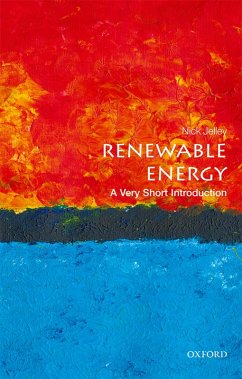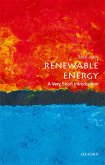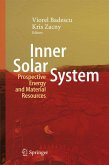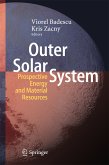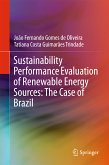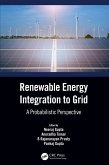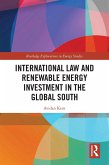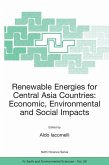Energy is vital for a good standard of living, and much of the world's population does not have enough. Affordable and adequate sources of power that do not cause climate change or pollution are crucial; and renewables provide the answer. Wind and solar farms can now provide the cheapest electricity in many parts of the world. Moreover, they could provide all of the world's energy needs. But while market forces are fast helping the transition from fossil fuels to renewables, there are opposing pressures, such as the USA's proposed withdrawal from the Paris Agreement, and the vested interests in fossil fuels. This Very Short Introduction describes the main renewable sources of energy- solar, wind, hydropower, and biomass- as well as the less well-developed ones- geothermal, tidal, and wave. Nick Jelley explains the challenges of integrating renewables into electricity grids, and the need for energy storage and for clean heat; and discusses the opportunities in developing countries for renewable energy to empower millions. He also considers international efforts and policies to support renewables and tackle climate change; and explains recent innovations in wind and solar energy production, battery storage, and in the emerging power-to-gas provision for clean heating. Throughout, he emphasises what renewable energy can deliver, and its importance in tackling climate change, and in improving health, welfare, and access to electricity. ABOUT THE SERIES: The Very Short Introductions series from Oxford University Press contains hundreds of titles in almost every subject area. These pocket-sized books are the perfect way to get ahead in a new subject quickly. Our expert authors combine facts, analysis, perspective, new ideas, and enthusiasm to make interesting and challenging topics highly readable.
Dieser Download kann aus rechtlichen Gründen nur mit Rechnungsadresse in A, B, BG, CY, CZ, D, DK, EW, E, FIN, F, GR, HR, H, IRL, I, LT, L, LR, M, NL, PL, P, R, S, SLO, SK ausgeliefert werden.

